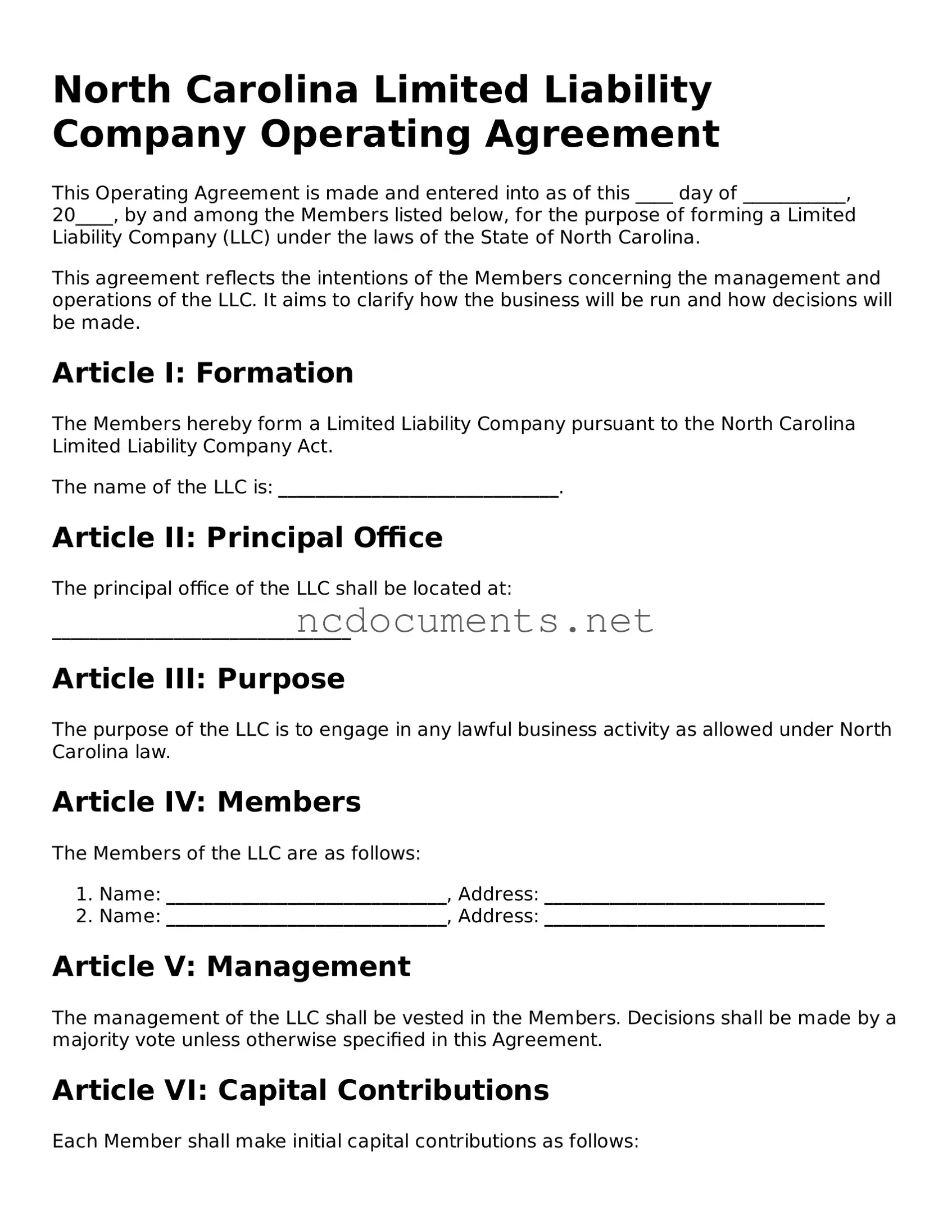Blank North Carolina Operating Agreement Template
The North Carolina Operating Agreement form is a crucial document that outlines the management structure and operating procedures of a limited liability company (LLC) in the state. This agreement helps define the roles and responsibilities of members, ensuring clarity and reducing potential conflicts. To get started on establishing your LLC, consider filling out the form by clicking the button below.
Access Operating Agreement Editor Here

Blank North Carolina Operating Agreement Template
Access Operating Agreement Editor Here
Complete your form before leaving
Complete Operating Agreement online in a few steps — edit, save, download.
Access Operating Agreement Editor Here
or
⇓ Operating Agreement PDF
